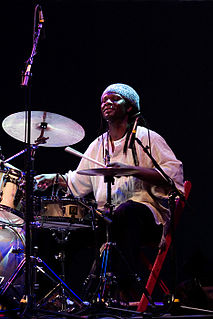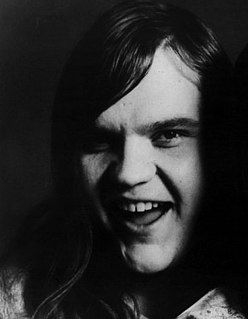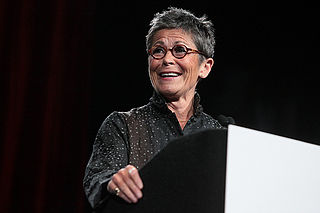A Quote by Samuel L. Jackson
Those are the rules. To improvise in a movie with other people, when they're following a script, everybody has to know what's going on. I think a line or two we might change. Certainly, I do. But I wouldn't call it improvising. I'd call it fudging the lines.
Related Quotes
What you learn from that first, and I don't call it 'trial by fire,' I call it 'baptism by fire,' is that you are going to have to take all of the responsibility, because basically when it gets right down to it, you are going to get all of the blame, so you might as well have made all of the decisions that led to people either liking it or disliking it. There's nothing worse than hearing somebody say 'Oh, you made that movie? I thought that movie sucked,' and you have to agree with them, you know?
I don't think fast enough on my feet in terms of the writing to change the script too much when I'm shooting it. I like to have it set and done and know that I feel good about it and I might add a few lines here and there while we're shooting, if I think of a new joke, I might toss it in, but for the most part, I try to stick to the written script and have all the latitude exist within that.
For me there's always a line or two in a script, when you hit it you almost decide to do the whole movie off a line or two. You almost do it for the fun of getting to say a line or two like that. I don't have any specific plans, you know. I mean, if Seth Rogen calls with a great buddy pic, I'll be there.
You gotta call it out first; it always has to be called out when we need social change, but this is how social change happens: you call it out. People had to call out child labor. People had to call out, 'Hey time's up; we need to vote. We live in this country.' People had to call out 'time's up' on enslaving people, you know.
There are many different kinds of doubt. When we doubt the future, we call it worry. When doubt other people we call is suspicion. When we doubt ourselves we call it inferiority. When we doubt God we call it unbelief. When we doubt what we hear on television we call it intelligence! When we doubt everything we call it cynicism or skepticism.
When I'm improvising, I'm out of my head. I've done a lot of projects recently where there hasn't been a script. It's all been based on outlines. At first, that's terrifying, just because you don't have the words in front of you and you don't know how it's going to come out, but that's what's really exciting about it. You don't know what's going to happen. It really forces you to listen to the other people, and I think the most natural acting comes out of that.
Do you call the people in Los Angeles in the nineties - do you call them rebels or opposition ? They are rebels. They are not rebels even, they are beheading. This opposition, opposing country or government, by beheading ? By barbecuing heads ? By eating the hearts of your victim ? Is that opposition ? What do you call the people who attacked the two towers on the 11th of September ? Opposition ? Even if they're not Americans, I know this, but some of them I think have nationality - I think one of them has American nationality. Do you call him opposition or terrorist ?
In this political climate, people are so shut down to other ideas - I call it a hardening of the categories - that if you can get them to open up and laugh, there is a possibility of improvement, and a possibility of change. I think humor sneaks up on people, and before you know it, you're laughing at something you might not agree with.




































